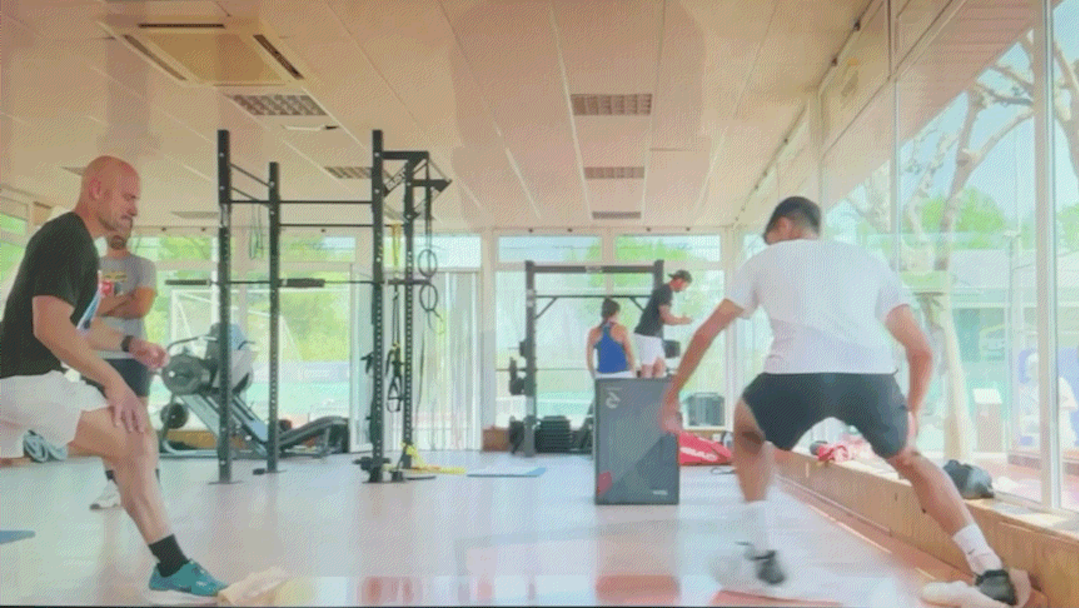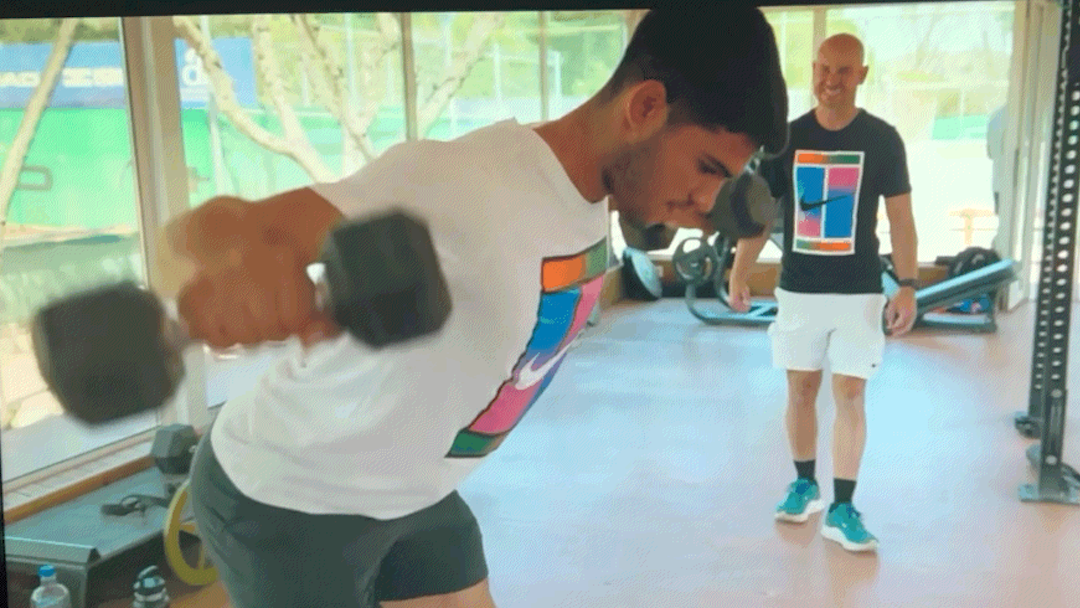Last Tuesday, I described how Aryna Sabalenka was briefly seen performing a standing leg abduction during Season 2 Episode 1 of the Netflix docuseries “Break Point.” Later in that same sequence, she performs a second variation of that same exercise. In this case, Sabalenka uses a therapeutic resistance band rather than a resistance loop. Unlike last week’s exercise, this one also requires a training partner.
As I observed last week, the standing leg abduction is excellent for tennis players because it strengthens the hip muscles, which are essential for lateral movement on the court. As a bonus, it also improves balance and stability by engaging the core and the glutes. As is often the case with muscular strength and tennis, this contributes to more powerful and explosive movements, improving court coverage. It also reduces the chances of injury.

This standing leg abduction exercise variant is performed with a resistance band and a training partner. The resistance band is looped around the knee as the partner anchors the other end of the band to create tension. The banded knee is lifted until the thigh is parallel to the ground. Engaging the core, the working leg is slowly moved to the side against the band’s resistance. Once the maximum abduction point is reached, the leg is returned to the starting position in a controlled manner. That’s one rep.
While resistance bands are usually sold in pre-cut lengths in a set, another alternative is a longer roll that is typically used by physical therapists. That allows for customization as the bands can be cut to the needed length. It’s also more cost-effective, as more material is received for a lower price than pre-cut bands.
Resistance bands are a great tool for working on the specific muscle groups crucial for tennis, such as the shoulders, arms, core, and legs. They are portable and versatile, allowing players to perform various exercises and drills that mimic the movements used on the court.

THERABAND Resistance Bands, 6 Yard Roll (<-Sponsored Link)
This is yet another example of how professional tennis players use training techniques and equipment that is accessible to all players. Now may be the time to add standing leg abductions and a set of resistance bands to your training routine. Whether you’re looking to prevent injuries, increase your agility, or improve your game, this might be exactly what you need.
Fiend At Court participates in the Amazon associates program and receives a paid commission on any purchases made via the links in this article. Details on the disposition of proceeds are available on the “About Fiend at Court” page.
Editorial Note: Apologies to those who received an early draft of this post over the weekend. I accidentally hit the “publish” button which sent it immediately out into the ether. I don’t have an effective means of recalling that content from all the platforms the post is distributed to.



